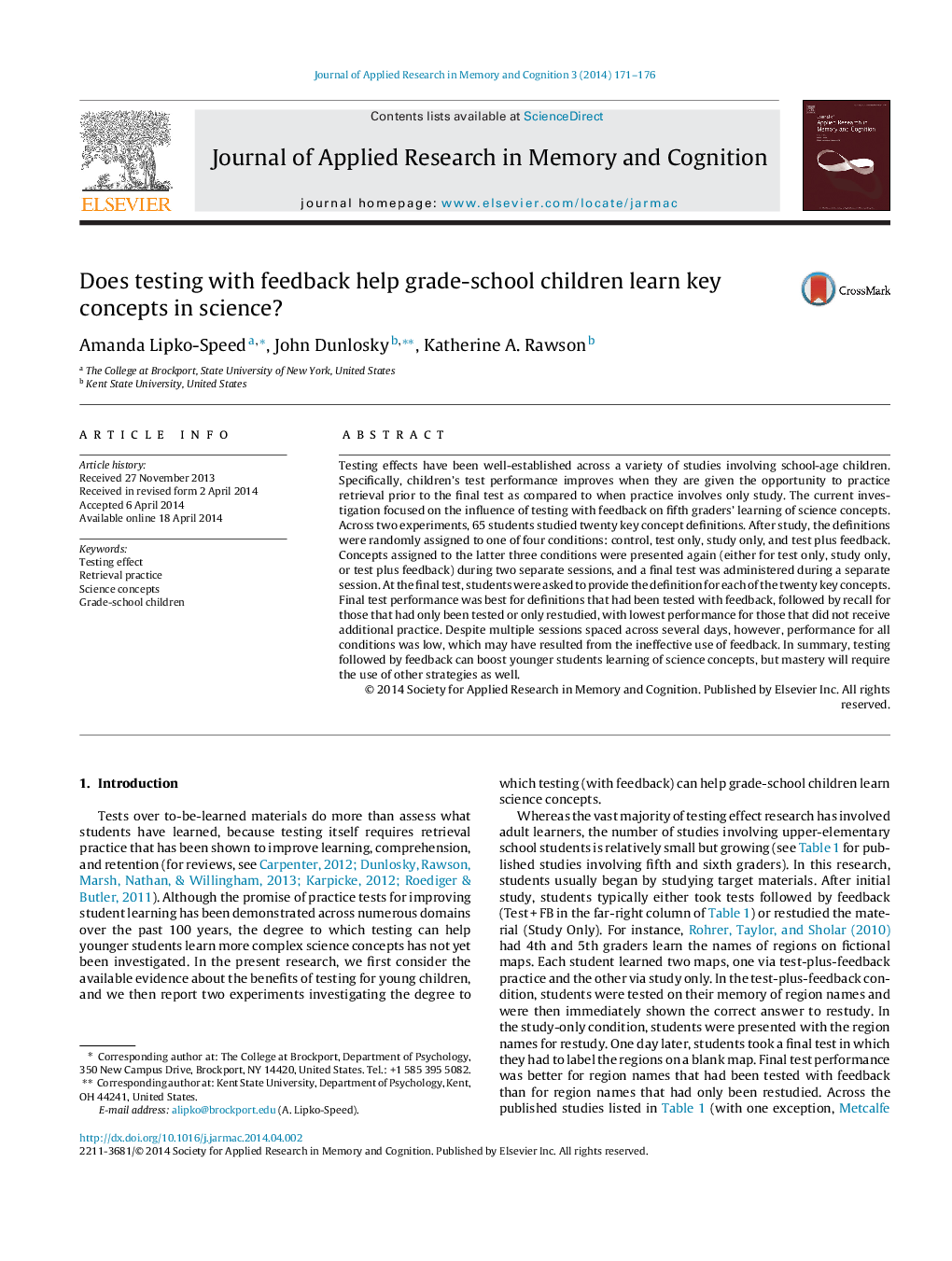| Article ID | Journal | Published Year | Pages | File Type |
|---|---|---|---|---|
| 881714 | Journal of Applied Research in Memory and Cognition | 2014 | 6 Pages |
•Investigated the influence of testing with feedback on 5th graders learning of science concepts.•Across all four conditions, final test performance was low.•Final test performance was best for concepts that had been tested with feedback.
Testing effects have been well-established across a variety of studies involving school-age children. Specifically, children's test performance improves when they are given the opportunity to practice retrieval prior to the final test as compared to when practice involves only study. The current investigation focused on the influence of testing with feedback on fifth graders’ learning of science concepts. Across two experiments, 65 students studied twenty key concept definitions. After study, the definitions were randomly assigned to one of four conditions: control, test only, study only, and test plus feedback. Concepts assigned to the latter three conditions were presented again (either for test only, study only, or test plus feedback) during two separate sessions, and a final test was administered during a separate session. At the final test, students were asked to provide the definition for each of the twenty key concepts. Final test performance was best for definitions that had been tested with feedback, followed by recall for those that had only been tested or only restudied, with lowest performance for those that did not receive additional practice. Despite multiple sessions spaced across several days, however, performance for all conditions was low, which may have resulted from the ineffective use of feedback. In summary, testing followed by feedback can boost younger students learning of science concepts, but mastery will require the use of other strategies as well.
